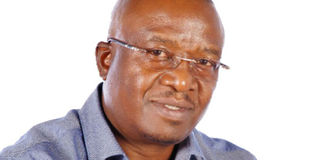Lessons from Uganda’s 2021 elections

Uganda has ‘decided’ for the next five years. Whoever wins this ‘free and fair’ election will be in charge of our nation’s destiny for the next five years. May the best man (or woman) win! However, there are some lessons we can take from the exercise. I share them with tongue in cheek!
Lesson 1: Taking power is not a tea party, more so in resource-challenged societies. Power in this kind of place can mean the difference between life and death. So nobody is going to hand over power to you after they have hunted their animal and are supposed to be the ones responsible for the distribution of the carcass.
This is a very serious food fight, and you don’t saunter in casually from the beach. That is very presumptuous! If you are not ready to die for power or get some people to die for you, you have no business being in this melee!
It is amazing that this fact has been ignored by all the people who want to lead this country despite their political savvy. Former DP president Paul Ssemogerere refused to understand it twice.
FDC’s Kizza Besigye did not get it, and neither did former prime minister Amama Mbabazi. FDC candidate Patrick Amuriat and his NUP counterpart Robert Kyagulanyi will soon attest its truth. Either you have ‘majje’ (army) or you are toast. You can check out this fact with that little lady from Koboko.
Lesson 2: People who acquire power are not your servants.
They are not working for you. Rather, they are freedom fighters and you just happen to benefit from their ‘lubimbi’ (duty). That will not change whomever you elect. In any case, in the process of electing them, they will have paid you with t-shirts, bicycles and pieces of soap.
Your payment is a function of where you are in the food chain. If you are a spiritual leader, there might be an SUV. If you are an influential leader in your locale, you might earn a ministerial post, bodyguards and a convoy. Afterwards you are owed nothing!
Lesson 3: Politics is the new economic powerhouse of Uganda. We are told that there are more than 1.2 million elective positions (sic) in the country and if you pick up one, something from the consolidated fund could eventually trickle down to you. Not bad for a country whose development yesterday was peasant-based agriculture. We are probably on a fast track to ‘midro’ income if we can get another 20 million people into elective politics.
Lesson 4: The things that matter most in serious polities do not seem to matter to us. Throughout the campaigns, most candidates spent their time bashing each other rather than debating the most important issue which continues to be the control of the commanding heights of our economy. Fifty odd years later, and we have not been able to discern the importance of economic independence. We may need another 50 years I guess for this to sink in.
Lesson 5: We need to sit and revisit the Uganda questions through a national reconciliation process. The job of being a Resident District Commissioner (RDC) is a hardy job, mostly suited to those who do not question their master’s voice. It does not require much imagination to perform. But even with such a low emotional and social quotient requirement, people’s sentiments will get through as you heard from the RDC up north.
In his infinite desire to be noticed and approved, he voiced an aspect of what many of us speak to our tribemates in private. As he campaigned for his candidate whom he equated to God, he did not fail to bash another candidate on account of the latter’s tribe.
Truth be told, most of us are still stuck in tribal mode and Uganda as a nation remains a figment. As a fractured society, we do need to talk, reconcile and heal.
For now, let us hold our peace, congratulate those who prepared best, and wait for the fire next time.
Prof Sejjaaka is country team leader at Mat Abacus Business School.
[email protected] @samuelsejjaaka




